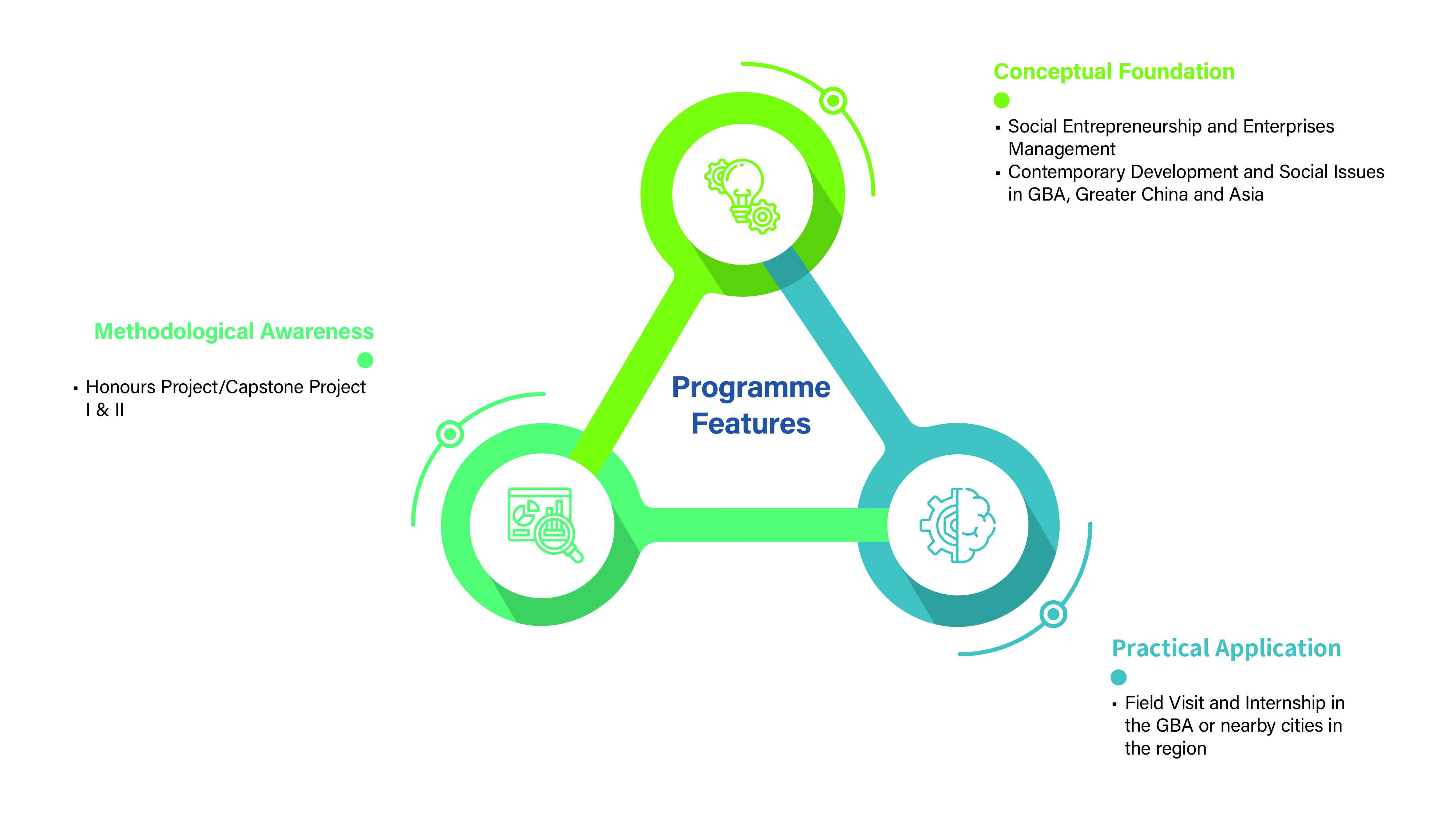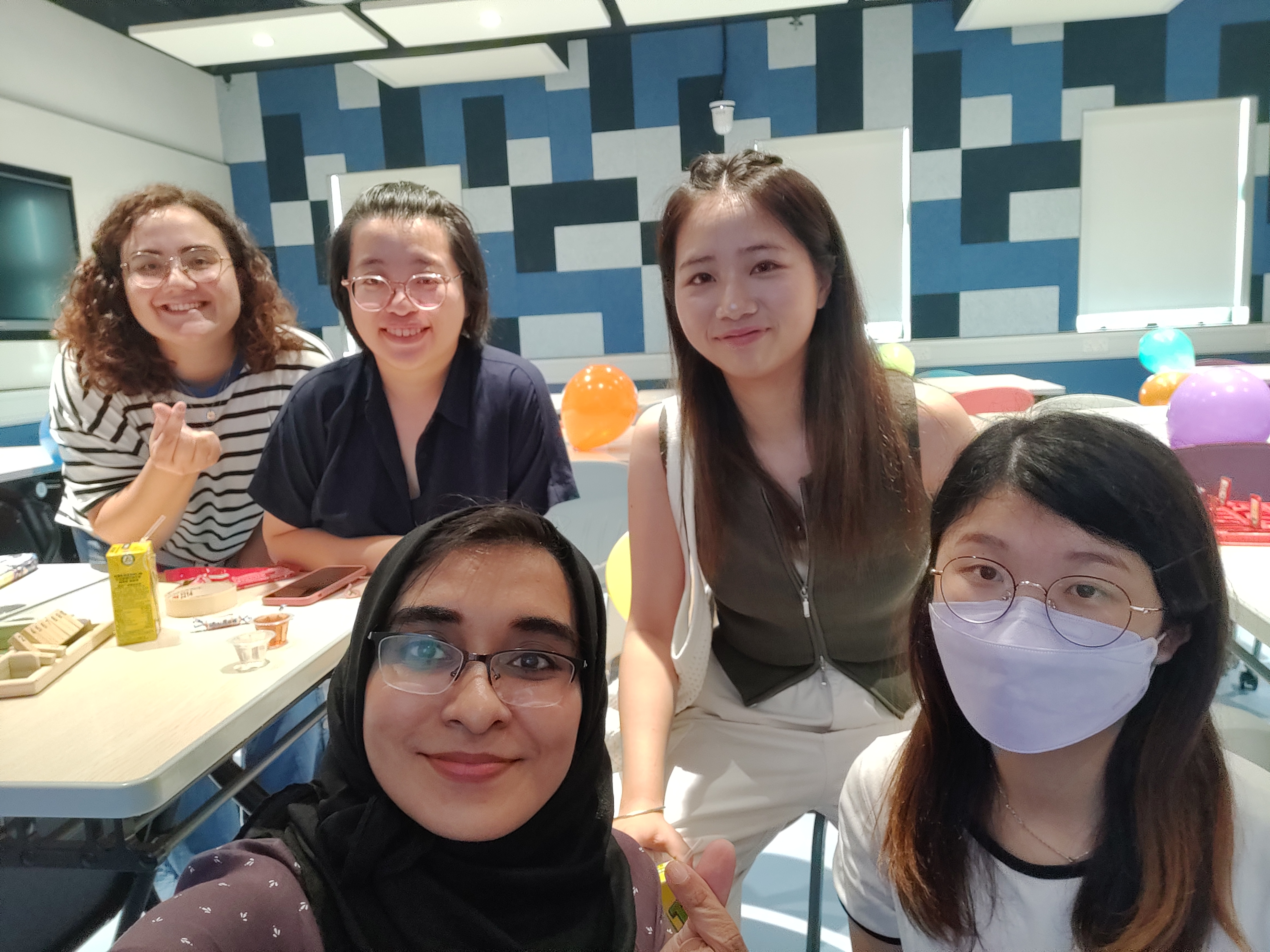| Programme Short Name | Study Mode | Normal Period of Study | JUPAS Code | EdUHK Programme Code |
|---|---|---|---|---|
| BSocSc(SEDS) | Full-time | 2 Years (Senior Year Admissions) | N/A | A2B103 |
| Enquiry (Admissions) | Enquiry (Programme) | Download Leaflet | Programme Webpage |
|---|---|---|---|
| (852) 2948 6886 Submit Your Enquiry |
Dr Shang Liang Echo lshang@eduhk.hk Ms Yanmi Lam (852) 2948 7428 ssps@eduhk.hk |
Download Leaflet | Programme Webpage |
Programme Introduction
In recent years, the ecosystem of social business has speedily evolved, and some social entrepreneurs and successful social innovation projects have emerged. In a rapidly changing world, social entrepreneurs develop strategies by drawing on and merging inventive thought from both non-profit and business sectors, start businesses with the dual purpose of profit and social value, and address social problems, such as poverty and unemployment, unfair trade, etc., with innovation. This Programme with a focus on the developmental needs in the Greater Bay Area (GBA) and emerging economies in Asia, provides students with a holistic experience of social entrepreneurship, enhances students with academic and professional foundations, and helps students develop networks through internship and field visits with organisations in Hong Kong and other cities in the GBA, enables students’ understanding of the complex dynamics of social transitions in GBA and Asia, in order to equip students for their future careers.

Programme Structure
| Domain | Credit Points (cps) |
|---|---|
| Senior Year Admissions | |
| Major | |
| - Major Course | 15 |
| - Major Electives | 6 |
| - Internship | 6 |
| - Cross-Faculty Core Course | 3 |
| - Major Interdisciplinary | 3 |
| - Field Visit (Non-credit bearing) | 0 |
| Minor / Electives | 15 |
| General Education | 6 |
| Final Year Project | |
| - Honours Project / Capstone Project | 6 |
| English Enhancement | 0 |
| Total: | 60 |
Note:
(1) Classes will be held in Tai Po Campus and Tseung Kwan O Study Centre / North Point Study Centre / Sports Centre / Kowloon Tong Satellite Study Centre as decided by the University.
(2) Students admitted into this programme are required to visit the Greater Bay Area (GBA) and/or other parts of the Chinese Mainland. The programme may also require students to participate in other non-local learning experience for completion of the programme. While the visits are subsidised, students are required to contribute part of the estimated cost of the visits ("students’ contribution"), whereas any personal entertainment, meals expenses, travel document fee and personal insurance costs shall be at students’ own expense. The estimated cost of the visits and students’ contribution for students admitted to the coming cohort is yet to be available due to a variety of factors such as inflation of cost of the visits, trip duration, traveling expenses, the exchange rate, etc.
Internship / Overseas Study Opportunities
The 200-hour Internship Programme aims to help students integrate and apply in a real-life setting the knowledge and skills they have gained in earlier stages of the programme. Students will be expected to engage in reflection throughout their Internship experience and make analyses with regard to different social issues. Placement in the public, private or third sectors will enhance students’ sense of social responsibility as well as their global perspectives. Practical experience in various fields will also assist students in making decision on their future career.
Career Prospects/Professional Recognitions
Through dedicated and practical training, the programme will prepare more young people who have the ambition to start a social venture, and grab the numerous funding opportunities that governments and businesses have offered. Graduates may also pursue an impactful career by joining existing social enterprises, government, socially responsible corporations, and NGOs as project or executive officers. In Hong Kong, social enterprises and non-governmental organisations have already provided approximately 80% of social services. These organisations often need to solicit resources from public or private sources, and communicate effectively with different stakeholders in society. Graduates will find ample employment opportunities.










 Back to top
Back to top